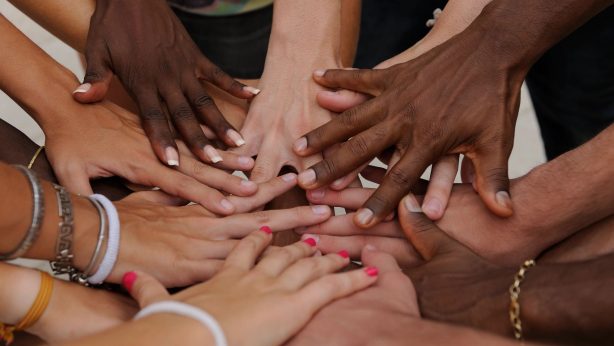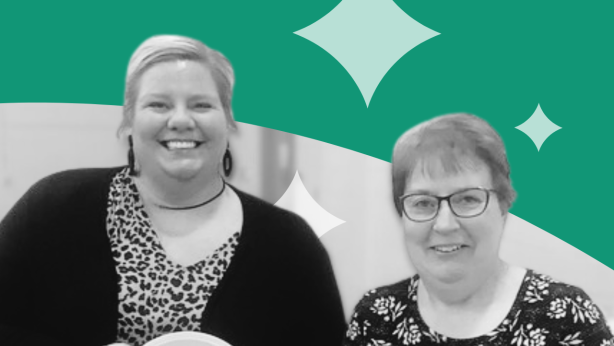Confronting Sexual Violence Against People with Disabilities
Sexual violence tragically affects many people, but those with disabilities face an even higher risk. Understanding their unique challenges and how to support them is crucial to preventing abuse and creating a safer world. Let’s uncover the impact of sexual violence on people with disabilities, provide tips for supporting them, and review great resources.
The High Risk of Sexual Violence for People with Disabilities
People with disabilities are at a significantly higher risk of being targeted for sexual violence. According to the Bureau of Justice Statistics, they are three times more likely to be raped or sexually assaulted than those without disabilities. 70% of respondents with disabilities experienced some form of abuse by an intimate partner, family member, caregiver, acquaintance, or stranger according to a survey by the Spectrum Institute Disability and Abuse Project. These staggering levels of harm are fueled by perpetrators taking advantage of vulnerabilities.
Why Do Perpetrators Target People with Disabilities?
- Dependence on Caregivers: Many people with disabilities rely on caregivers for daily tasks. This dependence can sometimes lead to situations where caregivers exploit their power. For example, care providers may be a part of intimate care routines like bathing, bathroom, and dressing, which can increase the opportunity for abusive acts without being caught.
- “Compliance Training”: People with disabilities are often taught to be obedient, passive, polite, and to manage challenging behaviors. This is known as “compliance training”. Unfortunately, abusers exploit it to manipulate people into abusive situations.
- Isolation: People with disabilities often face social isolation, making it harder for them to seek help or report abuse. Isolation can be physical, such as being confined to a home, or social, like being excluded from community activities.
- Denied Education: People with disabilities are more likely to grow up without sex education or abuse prevention information. Their sexuality may be ignored and they may be misinformed about their bodies, healthy sex, or how to tell if a relationship is positive or not.
- Communication Barriers: Many people with disabilities, especially those with intellectual or developmental disabilities, may have difficulty communicating. This makes it challenging to report abuse or even recognize that what they’re experiencing is wrong.
- Stigma and Discrimination: Negative societal attitudes devalue people with disabilities, mental health diagnoses, and other perceived vulnerabilities, which can lead to their experiences being dismissed or ignored. This stigma makes it more difficult for survivors to get the support and justice they deserve. Plus, abusive people leverage prejudices to justify abuse.
Supporting Survivors with Disabilities
Providing solid support for disabled survivors of sexual violence requires understanding their unique needs and ensuring that services are accessible. Think about what is available to survivors in your community. Are the following foundational factors in place?
- Accessibility: All services, including hotlines, counseling, and support groups, should be accessible to people with disabilities. This includes physical accessibility for those with mobility impairments and communication accessibility for those with hearing, vision, or intellectual disabilities.
- Training for Service Providers: All survivor service organization staff and volunteers should be trained to understand the unique needs of people with disabilities. This includes recognizing signs of abuse, communicating effectively, and providing compassionate, respectful support.
- Empowerment and Advocacy: The disability rights movement catchphrase “Nothing about us without us” highlights the need for full and direct participation in all decisions that impact their lives—individually and as a community. Organizations should provide space for and empower survivors with disabilities to speak out and advocate for their rights. This can be done through peer support groups, advocacy training, and providing information about their rights and available resources.
Resources for Survivors with Disabilities
Sexual violence against people with disabilities is a critical issue that demands our attention and action. By seeking to understand the unique challenges they face and providing accessible, compassionate support, we can help create a safer world for everyone. Remember, if you or someone you know with a disability has experienced sexual violence, help is available:
- Clove Alliance: Provides hope and healing to survivors of sexual violence. We strive to make our resources available and accessible to all, regardless of ability. Our office is wheelchair accessible and offers specialized counseling, legal services, prevention programs, and hotline support to people with disabilities. We also run the FIRST Collaboration; an initiative to ensure all individuals with disabilities will be guaranteed a safe environment free from sexual violence and to empower them to speak and act for themselves. Learn more here.
- The Arc’s National Center on Criminal Justice and Disability (NCCJD): Resources and support for people with intellectual and developmental disabilities who are victims of crime.
- Deaf Abused Women’s Network (DAWN): Legal, medical, system advocacy, and survivor support services. Video Phone: 202.559.5366
- National Disability Rights Network: NDRN members investigate reports of abuse and neglect, and seek systemic change to prevent further incidents; advocate for basic rights; and ensure accountability in health care, education, employment, housing, transportation, and within the juvenile and criminal justice systems for individuals with disabilities.
- National Sexual Assault Hotline (RAINN): RAINN is the nation’s largest anti-sexual violence organization. To speak with someone who is trained to help, call 800.656.HOPE (4673) to be connected with your local sexual assault service provider.
- You can chat online anonymously with a support specialist trained by RAINN at online.rainn.org.
- If you are Deaf, you can access help via video phone at 1.855.812.1001 (Monday to Friday 9 a.m.—5 p.m. PST).



